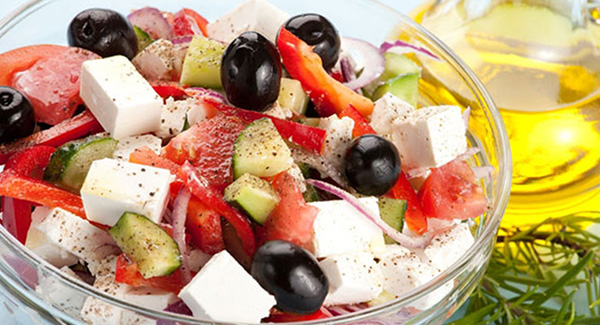Best Nuts and Seeds for Arthritis
Nuts and seeds come in small packages but can deliver big benefits for people with arthritis.
Nuts and Seeds Basics
Many nuts and seeds are a good source of polyunsaturated and monounsaturated fats, which lower cholesterol and reduce the heart disease risks that can be higher in people with certain types of arthritis. They also are a good source of protein and antioxidant vitamins and minerals. In addition, some nuts and seeds are high in alpha linoleic acid (ALA), a type of anti-inflammatory omega-3 fatty acid, says Marisa Moore, an Atlanta-based registered dietitian-nutritionist.
Some nuts are rich in magnesium, l-arginine and vitamin E, which may also play a role in keeping inflammation under control. Studies show that people who eat a diet high in these nutrients tend to have lower levels of some inflammation-causing molecules and higher levels of the anti-inflammatory protein adiponectin compared with those who consumed less.
Ideally, you should reach for raw, unsalted nuts, says Moore. However, unless you’re on a low-sodium diet, it’s ok to start with lightly salted nuts if it will help you switch from less healthy snacks, she says. But she cautions that nuts and seeds are high in calories, so don’t eat them mindlessly. One serving a day (about an ounce of nuts or one to two tablespoons of seeds) is all you need.
Learn more about the nut and seed selections that deliver the most health benefits.
Nuts and seeds are small, but their benefits are mighty. This article breaks down which ones help with inflammation, and which ones work best for daily snacking.
You can help someone fill their pantry with feel-good foods. Your support makes that possible.
Walnuts
High in ALA, walnuts have the highest omega-3 content, and researchers studying their effects have found they lower C-reactive protein (CRP), a marker of inflammation linked to increased risk of cardiovascular disease and arthritis. Eating walnuts regularly can lower cholesterol, relax blood vessels to lessen stress on the heart and reduce blood pressure.
Tips: Walnuts have a hefty texture that makes them a good centerpiece in meatless dishes. They can be pricey, so Moore likes to combine them with other healthy foods. Try a simple stir-fry of broccoli, walnuts and chopped garlic with a few squeezes of lemon juice.
Peanuts
Technically a legume, peanuts are the “nut” with the most protein (about 7 grams per 1-ounce serving). “They’re also cheaper than most nuts, so for people with arthritis trying to manage their weight, they make a filling, inexpensive snack,” says Moore. Peanuts are also a good source of monounsaturated and polyunsaturated fats, and research shows adding them to your diet can help lower “bad” low-density lipoprotein (LDL) cholesterol and reduce heart disease risk. Peanuts deliver about 12% of your daily magnesium requirement and may help keep blood sugar under control.
Tips: Use peanut butter in a creamy sauce for vegetables, pasta or chicken. Blend 1/3 cup smooth peanut butter, 1/3 cup of water or broth, two tablespoons each fresh lime juice and soy sauce and a dash of cayenne to taste. Look for peanut butters that list only one or two ingredients: peanuts or peanuts and salt.
Almonds
Because almonds contain more fiber than most nuts, they’re a good choice for weight management, says Moore. “You’ll be more satisfied for longer, and you also get some cholesterol-reducing benefits from the healthy fats,” she says. “They are also a good source of antioxidant vitamin E.” Research suggests the monounsaturated fats from an almond-rich diet lower some markers of inflammation, including CRP.
Tips: Mix slivered almonds into rice and vegetable dishes to add crunch and subtle flavor. Almonds also make a great snack – try pairing with apples and fresh cherries for a great complementary taste.
Pistachios
Snacking on pistachios may help with weight loss because dealing with the shells will slow down how much you eat. This is good for people with arthritis trying to lose a few pounds to take pressure off joints. Pistachios can also help lower LDL cholesterol and are high in potassium and antioxidants, including vitamins A and E and lutein – a compound also found in dark, leafy vegetables.
Tips: Sprinkle pistachios over Greek yogurt drizzled with honey for a high-protein, high-fiber snack or breakfast. Crushed pistachios also make a flavorful, crunchy coating for fish or chicken.
Flaxseed
Flaxseed is one of the richest plant-based sources of ALA. Studies show it may help lower overall cholesterol and “bad” LDL cholesterol and reduce the complications of diabetes and heart disease risk. Crushing or milling the flaxseed makes it easier for your body to digest and use the ALA, so choose these varieties over whole seeds.
Tips: Stir into yogurt along with some fruit, add to smoothies or sprinkle onto cereal or salads.
Chia Seeds
Chia seeds are also an excellent source of anti-inflammatory ALA, but their biggest benefit is probably their high fiber content (about 10 grams per serving), which will you fill you up and help control weight, says Moore.
Tips: Chia seeds absorb liquid easily and take on a jelly-like consistency. Moore suggests blending chia seeds with almond or coconut milk, fruit and vanilla extract then chilling the mixture in the refrigerator to create a chia pudding. Or simply add chia seeds to your smoothies and oatmeal.
Little changes can create big wins. Your generosity keeps these approachable nutrition tips within reach.
Thank you for supporting healthier choices with every gift.

Stay in the Know. Live in the Yes.
Get involved with the arthritis community. Tell us a little about yourself and, based on your interests, you’ll receive emails packed with the latest information and resources to live your best life and connect with others.




